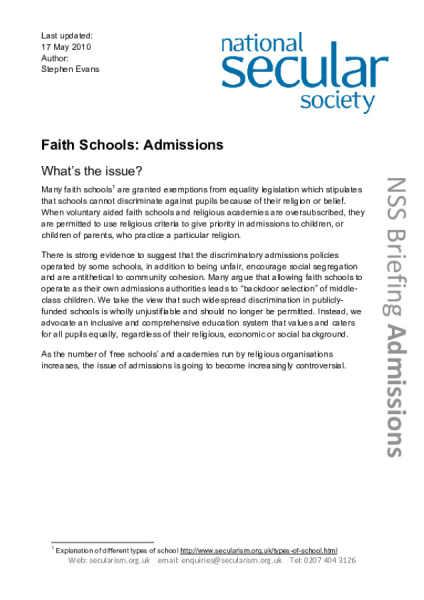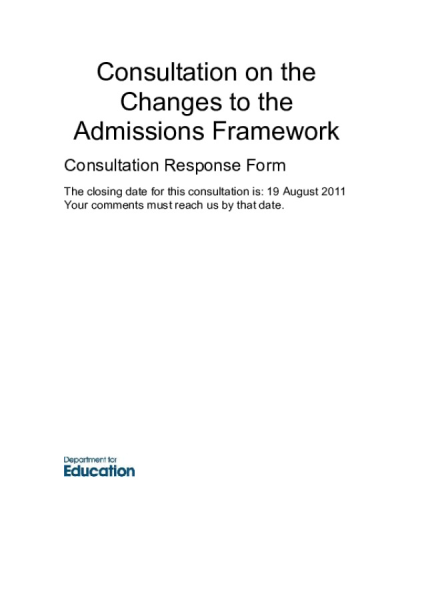Faith schools, Segregation and Social cohesion
Research presented by the London School of Economics and the Institute of Education has found that faith schools create "social sorting" of children along lines of class, ability and religion.
In a society already seeing rising tensions over race and religion, children should not be separated on the grounds of their parents' religion at such a formative time in their lives. Research shows that it is vital that they learn about each others' lives, cultures and the common ground they all have. Familiarity and learning to see people as individuals is a great weapon against prejudice in later life.
It is understandable that religious minorities who do not currently have publicly-funded schools want them when they see other religions or denominations benefitting from public money. But government policy allowing them to open their own schools will just further separate them from mainstream communities, creating self imposed segregation. The only fair way, and the only way that will benefit society, is if no religion is allowed control of publicly-funded schools.
Communities will best learn to live peacefully together if they grow up and learn together, respecting each other's differences. If they are separated into religious groupings at such an early age, racism, suspicion of anyone 'different' and bigotry can all too easily develop.
Research has shown that initiatives to bring schools together, for example, through sporting events, does not improve relationships between cultures. The competitive nature of many events makes children (and parents) feel their separate identity more, not less. Teaching in schools that a particular set of beliefs is the only right one can only reinforce this division and provides further excuses for rivalry, distrust and prejudice.
Find out more
 Admissions Campaign Briefing (PDF, 399 Kb)
Admissions Campaign Briefing (PDF, 399 Kb) NSS response to admissions framework consultation (2011) (PDF, 348 Kb)
NSS response to admissions framework consultation (2011) (PDF, 348 Kb)

